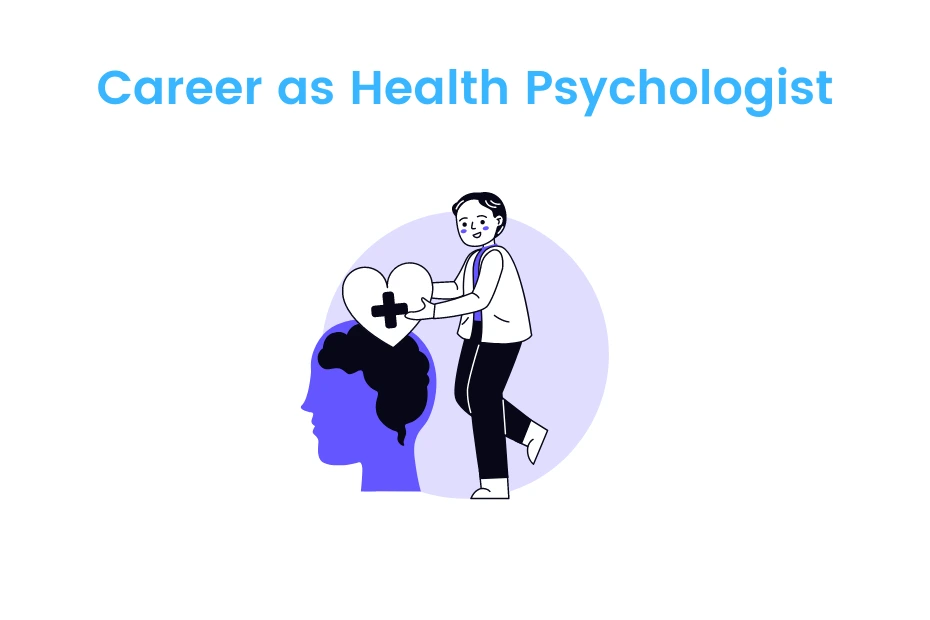Discovering the Best Psychologist in Delhi: An Overview to Your Psychological Wellness Journey
The Duty of Psych Treatment in Taking Care Of Anxiousness and Depression
Psychotherapy has become a foundation in the monitoring of anxiousness and clinical depression, supplying customized interventions that range from Cognitive-Behavioral Therapy (CBT) to mindfulness-based approaches. These techniques not only help individuals in identifying and restructuring negative thought patterns but also foster present-moment awareness, reducing the tendency to ruminate. As we explore the numerous measurements of psychiatric therapy, it comes to be evident that these methods do even more than simply relieve signs and symptoms; they significantly boost psychological guideline and social abilities - Best Psychologist in Delhi. What continues to be to be checked out is exactly how these restorative methods can be successfully tailored to fulfill specific demands, consequently enhancing their impact.
Recognizing Stress And Anxiety and Depression
Understanding stress and anxiety and clinical depression requires a thorough consider these prevalent psychological health and wellness problems, which often exist side-by-side and significantly effect a person's day-to-day live. Anxiousness is characterized by consistent, too much worry and are afraid about everyday circumstances. Signs include restlessness, rapid heart rate, and trouble focusing. On the other hand, anxiety shows up as a prevalent feeling of vacuum, hopelessness, or despair, often gone along with by a loss of passion in previously taken pleasure in tasks, adjustments in cravings, and sleep disruptions.
The conjunction of anxiousness and depression can complicate and aggravate signs and symptoms medical diagnosis and treatment. Individuals experiencing both conditions may experience much more severe signs and symptoms, greater problems in social and occupational functioning, and a longer period of disease. This comorbidity requires a nuanced understanding and strategy to treatment.
Neurobiological factors such as natural chemical inequalities, hereditary proneness, and environmental stress factors add to the advancement and upkeep of these conditions. Additionally, cognitive patterns like negative reasoning and maladaptive habits can bolster these conditions. Understanding the complex interaction of these variables is important for reliable treatment. Comprehensive analysis by mental health experts is vital to discern the presence and extent of these problems, paving the means for customized healing approaches.
Types of Psychiatric Therapy
Psychiatric therapy, additionally referred to as talk treatment, encompasses a selection of treatment techniques developed to minimize signs and symptoms of anxiety and anxiety by resolving the underlying emotional and psychological problems. Different kinds of psychotherapy are customized to fulfill the one-of-a-kind demands of people, providing a variety of methods to mental healthcare.
One widely utilized form is psychodynamic treatment, which concentrates on understanding and fixing unconscious conflicts stemming from very early life experiences. By checking out these deep-seated concerns, individuals acquire insight right into their current habits and emotion.
Interpersonal Treatment (IPT) is one more effective modality that focuses on enhancing interpersonal partnerships and function to decrease depressive signs and symptoms. It normally deals with concerns such as sorrow, role shifts, and interpersonal disagreements.
Humanistic therapies, such as Client-Centered Treatment, highlight individual growth and self-actualization. Best Psychologist in Delhi. These strategies create an encouraging atmosphere where people can explore their sensations and create a more powerful feeling of self
Finally, Dialectical Behavior Modification (DBT) integrates cognitive-behavioral techniques with mindfulness methods. Initially created for borderline character disorder, DBT has actually been adjusted to treat stress and anxiety and clinical depression by mentor abilities in distress tolerance, emotional law, and social efficiency.
These varied psychotherapeutic methods use numerous paths to mental wellness and health, dealing with restorative demands and individual preferences.
Cognitive-Behavioral Therapy (CBT)
Amongst the numerous psychotherapeutic modalities, Cognitive-Behavioral Therapy (CBT) attracts attention for its structured, ambitious approach in treating anxiousness and depression. Developed by Aaron T. Beck in the 1960s, CBT is asserted on the idea that maladaptive thinking patterns contribute significantly to emotional distress and behavioral problems. By recognizing and restructuring these negative thought patterns, CBT aims to minimize signs and symptoms and foster much healthier cognitive procedures.
CBT is generally short-term, spanning 12 to 20 sessions, and includes a collective effort between therapist and patient. The therapy encompasses a variety of techniques, including cognitive restructuring, direct exposure treatment, and behavior activation. Cognitive restructuring concentrates on testing and customizing distorted cognitions, while exposure therapy gradually adjusts clients to anxiety-provoking stimuli, reducing evasion behaviors. Behavior activation looks for to boost click over here now interaction in gratifying activities to neutralize depressive states.
Empirical proof underscores the efficacy of CBT, with countless studies showing its performance in lowering signs of anxiety and clinical depression. This restorative technique has actually been adapted for numerous populations and setups, confirming flexible and versatile. Its structured nature, empirical assistance, and concentrate on ability procurement make CBT a cornerstone in the psychotherapeutic therapy of anxiousness and depression.
Mindfulness-Based Techniques
Mindfulness-Based Strategies have garnered considerable focus in recent times as effective treatments for stress and anxiety and depression. Rooted in ancient meditation methods, these methods aim to cultivate an enhanced recognition of the present moment, which can assist individuals disengage from the ruminative thought patterns usually connected with anxiousness and depressive problems.

In A Similar Way, Mindfulness-Based Cognitive Therapy (MBCT) incorporates principles from Cognitive-Behavioral Treatment (CBT) with mindfulness techniques. MBCT is particularly effective in protecting against regression in individuals with frequent depression. By recognizing very early indication of depressive episodes, individuals learnt MBCT can apply mindfulness practices to reduce the start of full-on episodes.
Advantages of Psychiatric Therapy
Numerous research studies have actually demonstrated the extensive advantages of psychotherapy for people coming to grips with anxiousness blog here and anxiety. One of the vital advantages is the renovation of emotional law. Psychotherapy gears up individuals with coping strategies to handle stressful feelings, consequently decreasing symptoms of anxiousness and clinical depression. Cognitive-behavioral therapy (CBT), for example, assists individuals recognize and challenge adverse idea patterns, cultivating a more well balanced and positive overview.
In addition, psychiatric therapy gives an organized setting for self-exploration and insight. By reviewing their experiences and feelings with a skilled therapist, people can uncover underlying issues contributing to their mental wellness battles. This self-awareness is a critical action toward lasting recovery and resilience.
One more considerable benefit is the enhancement of social skills. Stress and anxiety and clinical depression frequently strain partnerships, causing isolation. Through therapeutic interventions, people learn efficient interaction and conflict-resolution abilities, which can boost their interactions and foster encouraging relationships.
In addition, psychotherapy uses a tailored method to therapy. Specialists can adjust strategies to satisfy the unique demands of each patient, guaranteeing an individualized treatment plan. This modification boosts the efficacy of treatment, promoting continual psychological health and wellness enhancements. Inevitably, the advantages of psychotherapy prolong past sign relief, adding to general health and lifestyle.

Verdict
Psychotherapy considerably adds to the monitoring of anxiety and depression by providing reliable coping techniques and a secure environment for self-exploration. Methods such as Cognitive-Behavioral Treatment (CBT) and mindfulness-based strategies contribute in recognizing and restructuring adverse idea patterns, while advertising present-moment awareness. These customized treatments not just alleviate signs and symptoms however likewise boost emotional guideline and social abilities, thus enhancing general health and high quality of life for people facing these mental health and wellness obstacles.
Psychotherapy has actually arised as a foundation in the administration of anxiety and anxiety, using tailored treatments that vary from Cognitive-Behavioral Therapy (CBT) to mindfulness-based strategies.Understanding anxiety and clinical depression calls for an extensive look at these widespread mental health and wellness problems, which commonly coexist and substantially influence a person's day-to-day life.Amongst the various psychotherapeutic modalities, Cognitive-Behavioral Therapy (CBT) stands out for its structured, goal-oriented approach in dealing with internet anxiousness and clinical depression.Many studies have shown the extensive advantages of psychiatric therapy for people grappling with anxiety and clinical depression. Psychiatric therapy gears up clients with coping approaches to manage distressing feelings, thus minimizing symptoms of anxiousness and clinical depression.